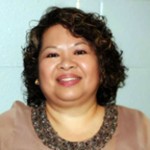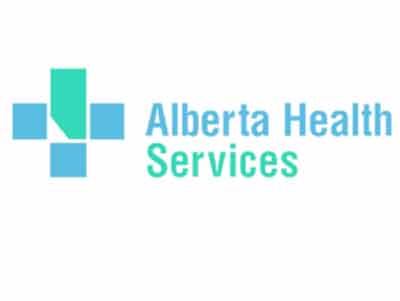- News Front Page
- Uncategorized
- Headline News
- Filipino Calgarian
- Business
- Pinoy Stories
- Community News
- Publisher's Note
- The Main Ingredient
- Views and Opinions
- Maikling Kwento
- Alberta News
- OFW – Month
- Travel News
- Health and Lifestyle
- Pinoy Toons
- Pinoy Spirit
- Entertainment
- The Philippine Lawyer
- Horoscope
- Greetings
- About Us
- Greetings From the Prime Minister
- Greetings from the President of the Philippines
- Greetings from the Premier of Alberta
- Greetings from the Mayor of Calgary
- Advertise With Us
- Disclaimer
- Subscription
Publisher's Note
- Publisher’s Note
 by CK
May is the month of flowers not just in the Philippines but also here in Calgary. A lot of my neighbors have done their spring cleaning and unfortunately I cannot cope up with them. I remember that during this time of the year my husband, Hank gets busier day by day. He takes care [...]
by CK
May is the month of flowers not just in the Philippines but also here in Calgary. A lot of my neighbors have done their spring cleaning and unfortunately I cannot cope up with them. I remember that during this time of the year my husband, Hank gets busier day by day. He takes care [...]
Visitors to Pinoytimes
Page added on November 17, 2010
EMOTIONAL WELLNESS

Q: What is emotional health?
A: Emotional health is a term that describes the wellbeing of our thoughts, feelings and behaviours. It involves keeping a balance in the social, physical, spiritual, economic and mental aspects of one’s life. You may also hear emotional health being referred to as mental health.
Q: Is emotional health separate from physical health?
A: Actually the two can be connected. Sometimes when people have poor mental health they complain of physical symptoms such as stomach pain or a headache. The opposite can also be true, physical health issues can lead to poor mental health. Exercise can sometimes be good for both physical health, and mental health.
Q: What is mental illness?
A: Mental Illness is a health condition that causes changes in a person’s thought, feelings, or behaviours (or all three), and that causes a person distress to the extent that it is difficult to function.
Q: How many people are affected by mental illness?
A: The Canadian Mental Health Association estimates that 1 in 5 Canadians, close to six million will develop a mental illness at some time in their lives.
Q: What happens to people with mental illness in Canada?
A: In Canada, treatment and support can be offered to people with mental illness and their families. Many people with mental illness can lead very functional lives if they stick to their treatment. Some examples of types of treatment can include medication, counselling or therapy, leisure activities, acupuncture, etc.
Q: What are some common stressors for newcomers once they arrive in Canada that may affect their emotional health?
A: Language, Canadian Laws, Culture Shock, Education, Discrimination, Housing, Weather, Health Care, Employment, Food, Finances, Family Issues, Transportation, Domestic Violence, High Expectations, Loneliness.
Q: Is there anything that can help people to keep mentally healthy?
A: Getting support from family and friends; being active; eating healthy foods such as fruits, vegetables, and whole grains; getting enough sleep (approximately 8 hours per night); feeling connected to one’s community; having fun; taking time for one’s self (by meditating, going for nature walk, reading a book, etc.).
Q: How can I do all of those things?
A: It can be tricky, but it’s all about maintaining a balance of these different parts of life. You may have to schedule them into a calendar or plan ahead for them. If you notice that you are spending a lot of time on one of these activities, but are missing out on others, then you may need to plan and organize a way to include what you are missing.
Q: What are some signs or symptoms that someone may be experiencing poor mental health?
A: Sad mood; loss of interest or pleasure; weight loss or gain; problems with sleep (too little or too much); agitation or irritability; fatigue or loss of energy; feeling worthless or guilty; inability to concentrate; and thoughts of death.
Q: Where can one go for help with emotional health issues in Calgary?
A: One can start off by going to his or her family doctor. A family doctor can provide a prescription for medication, or a referral to health professionals or community services for counselling. Another place that one can go for help with emotional health is to a walk-in clinic that is especially for emotional health issues. There is one located at Sheldon Chumir Health Centre, and one at South Calgary Health Centre. The walk-in emotional health clinic is for more urgent matters, that is, people who cannot wait for an appointment with a doctor or specialist. Another place that one can go for help with emotional help is to the Emergency Department. The emergency department is for emotional health emergencies. Examples of emotional health emergencies would be if someone is thinking of harming him or herself, or harming another person; or if someone is seeing or hearing things that are not really there.
Q: What type of professional can help with an emotional health issue?
A: There are several types of helpers that can help with an emotional health issue, and each of them may have a different role to play. Therefore it is often good to have a team of helpers. This team can include: Psychiatrists, Psychologists, Nurses, Family Doctors, Social Workers, Spiritual Leaders, Counsellors, Traditional Healers, Crisis Workers, Settlement Workers, and Teachers.
Q: When should someone get help?
A: Sometimes it is good to talk to a counsellor to get perspective on one’s problems. In Canada people do seek professional help to deal with emotional issues. It is good to seek help when emotional problems start to interfere with daily functioning, or when you feel that you may need some sort of treatment to help deal with emotions.
Q: Is there a way to get help over the phone?
A: Yes, You can get help for emotional health over the phone by calling Health Link, Access Mental Health, or the Calgary Distress Centre. If you do not speak English, you can request an interpreter on the phone by stating which language you speak.
- Call Health Link Alberta at 1-866-408-5465 toll free, offers over-the- phone medical advice from trained nurses 24 hours a day, 7 days a week. Mandarin Health Link Calgary 403-943-1554, Cantonese Health Link Calgary 403-943-1556.
- Call Access Mental Health, (403) 943-1500, which is the place to call to ask any questions about emotional health, or to get referred to a mental health service.
- The Calgary Distress Centre, (403) 266-1605, is available 24 hours a day, 7 days a week for those in crisis who would like to talk with someone.
Q: Again, what can I do to stay emotionally healthy and happy?
A: Eat healthy; be active; talk to your family/friends and health professionals; and be patient, it may take some time to feel better. Also, remember that there is treatment available if you need it.
Source: Written by Jackie Berger, MSW, RSW, Mental Health Diversity Strategist, Reducing Disparities, Alberta Health Services
If you want to read any of the previous ‘Road To Healthy Living’ series articles, please go to
http://www.calgaryhealthregion.ca/programs/diversity/multilingual_health_services.htm and get health information in your own language.
RELATED STORIES
LATEST HEADLINES
- Alberta implements provisional ban on temporary foreign workers
- April 2017 photo enforcement locations
- New support for Alberta’s women entrepreneurs
- Miss Universe France Iris Mittenaere Crowned MISS UNIVERSE 2016
- Growth of good jobs for Canadians the goal of the Global Skills Strategy
COMMUNITY NEWS
 WHAT IS THERE TO LOSE?
WHAT IS THERE TO LOSE? Changes to Regulations Will See Age Increased for Dependent Child
Changes to Regulations Will See Age Increased for Dependent Child ABS-CBN Files $5M Lawsuit Against Casinillo and Gonzalez For Selling Pirated Set-Top Boxes in Edmonton, Canada
ABS-CBN Files $5M Lawsuit Against Casinillo and Gonzalez For Selling Pirated Set-Top Boxes in Edmonton, Canada Forever in our Hearts
Forever in our HeartsPINOY STORIES
 More Pinoys enjoys Kapamilya Shows via ABS-CBN TV Plus
More Pinoys enjoys Kapamilya Shows via ABS-CBN TV Plus- Holy Week practices in the Philippines
PINOY SPIRIT
HAVE YOUR SAY
Lorem ipsum dolor sit amet, consectetur adipiscing elit, dolor sit ipsum.PROMOTIONAL BLOCK
Lorem ipsum dolor sit amet, consectetur adipiscing elit, dolor sit ipsum.TRAVEL NEWS
PINOY TOONS
Tags
Archives















